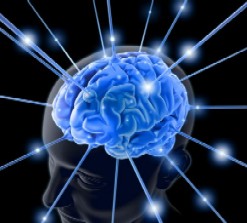The Truth about Control over Life and Death
“It is not understood that before life an individual decides to live. A self is not simply the accidental personification of the body’s biological mechanism. Each person born desires to be born. He dies when that desire no longer operates. No epidemic or illness or natural disaster — or stray bullet from a murderer’s gun — will kill a person who does not want to die.
The desire for life has been most flaunted, yet human psychology has seldom dealt with the quite active desire for death. In its natural form this is not a morbid, frightened, neurotic, or cowardly attempt to escape life, but a definite, positive, “healthy” acceleration of the desire for survival, in which the individual strongly wants to leave physical life as once the child wanted to leave the parent’s home.
(11:44.) I am not speaking here of the desire for suicide, which involves a definite killing of the body by self-deliberate means — often of a violent nature. Ideally this desire for death, however, would simply involve the slowing of the body’s processes, the gradual disentanglement of psyche from flesh; or in other instances, according to individual characteristics, a sudden, natural stopping of the body’s processes.
Left alone, the self and the body are so entwined that the separation would be smooth. The body would automatically follow the wishes of the inner self. In the case of suicide, for example, the self is to some extent acting out of context with the body, which still has its own will to live.”
“Often, for example, a person wanting to die originally intended to experience only a portion of earth life, say childhood. This purpose would be entwined with the parents’ intent. Such a son or daughter might be born, for instance, through a woman who wanted to experience childbirth but who did not necessarily want to encounter the years of child-raising, for her own reasons.
Such a mother would attract a consciousness who desired, perhaps, to reexperience childhood but not adulthood, or who might teach the mother lessons sorely needed. Such a child might naturally die at 10 or 12, or earlier. Yet the ministrations of science might keep the child alive far longer, until such a person [begins] encountering an adulthood thrust upon him or her, so to speak.
An automobile accident, suicide, or another kind of accident might result. The person might fall prey to an epidemic, but the smoothness of biological motion or psychological motion has been lost. I am not here condoning suicide, for too often in your society it is the unfortunate result of conflicting beliefs — and yet it is true to say that all deaths are suicide, and all births deliberate on the part of child and parent. To that extent, you cannot separate issues like a population explosion on the part of certain portions of the world, from epidemics, earthquakes, and other disasters.“
- SETH (The Individual and the Nature of Mass Events)

